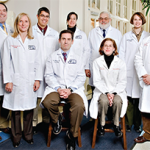“All over the world, climate will affect those who are more marginalized in terms of their resources, whether it’s due to economic resources or racial disparities,” Dr. Dellaripa said.
This area of study will require more advanced mapping tools and knowledge to identify those who are most vulnerable so that healthcare leaders can assist them, limit harm and adapt to the effects of climate change.
What Rheumatologists Can Do
Dr. Dellaripa shared a few things rheumatologists and healthcare professionals can do to lower their carbon footprint and to remain conscientious about the environment. These tips include:
- Taking advantage lower cost renewable energy in healthcare settings; and
- Limiting waste in both their professional and personal lives.
In a sense, it means modifying daily life through the lens of its effect on the environment, he explained.
“In the healthcare system, our goal is to limit our emission of greenhouse gases that harm our environment and can, thus, harm our patients. Our goal is to take care of patients. We just need to find ways to do it more efficiently,” he said.
Education on these topics in medical school and graduate training is also important, and curriculum changes incorporating climate change are already happening. Examples Dr. Dellaripa gave included a climate and health committee within many medical residencies and embedding climate/health knowledge into medical school curricula.
Dr. Dellaripa also recommends considering climate when appropriate during patient education. Example: During a heat wave, Dr. Dellaripa saw a patient with renal disease who developed side effects of his medication in the setting of dehydration due to excessive heat exposure.
“Being aware which patients may be at risk for heat exposure or other climate effects is challenging for the average clinician, but it’s important that we try to find better ways to talk to and advise those patients who may be at higher risk for the effects related to climate change,” he said.
Although climate issues are obviously important, Dr. Dellaripa cautions against “hitting [patients] over the head about climate change,” he said. “They come to see you for their RA or [juvenile idiopathic arthritis] or lupus, and you don’t want to preach to people about how they need to walk more to save the planet.”
However, if you encourage patients to walk more or eat a healthier diet with less red meat to improve their health, the happy co-benefit is a positive effect on the environment.



